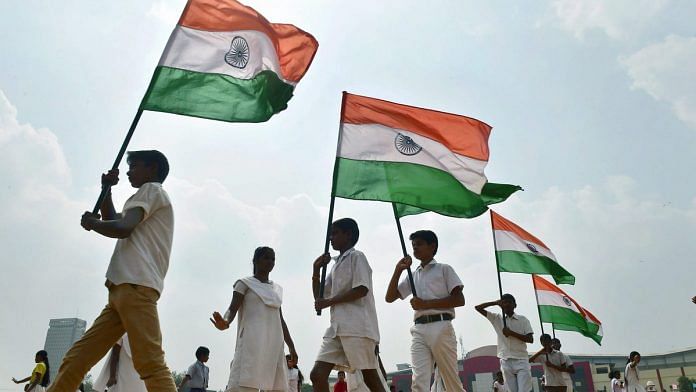I was invited as a panellist on BBC’s Newsnight show in London to discuss the situation in Manipur in August last year. Despite being asked to remain in contact for potential future appearances, I noticed an immediate cessation of communication from the production team after my interview. While excerpts from other panellists’ interviews were promptly shared on the channel’s social media platforms, my contribution was conspicuously absent. The exclusion was evidently due to my refusal to conform to the mainstream media’s narrative.
Interestingly, the BBC’s headlines regarding the violence in Manipur characterised it as being on the brink of civil war even though the nature of the conflict was ethnic violence. In contrast, around the same time, the violent clashes in Leicester were framed as mere law and order issues. This disparity in coverage made me ponder the exaggeration and narrative twist applied by the Western media they report on incidents in India.
Moreover, residing in the United Kingdom and being part of a university campus provided me with ample opportunities to engage with students from all around the world. My country often became a topic of discussion. I was prepared for some criticism and discussion around India’s flaws, shortcomings, and fault lines. However, the narrative and questions I encountered left me surprised and wondering how they were aware of issues that, as an Indian, I didn’t see on the ground. I was also baffled by the fact that they could not mention or seemed unaware of any achievements of India and its people.
Also read: US campus protests shows up Western media hypocrisy. Compare how they covered JNU stir
The nuances of Indian democracy
Slowly, it became clear that they were just following their mainstream media narrative, lacking any other sources of information. This realisation crystallised for me after attending the BBC show, where it was evident that dissenting voices were neither allowed nor accommodated. Consequently, I made my peace with this reality. However, I recently read an article in the Daily Express, whose journalists are covering the ongoing Indian general elections, which came as a pleasant surprise. The article did not mention any doomsday scenario where Indian democracy is portrayed as on the verge of dying, or that a minority genocide is imminent in the country.
The report piqued my curiosity and I started wondering if we are going to see a shift in the Western narrative when it comes to India. I decided to reach out to Sam Stevenson, Assistant Editor, Politics, at the Daily Express. We discussed the unbearable heat waves in North India and how he was keeping up with it. As our conversation progressed, it gradually shifted toward more serious topics. I wanted to know what led him to cover the 2024 Lok Sabha elections. His answer was simple and to the point: he had grown fed up with the negative coverage by Western media and wanted to highlight the positive aspects of the world’s largest democratic nation. He aimed to highlight the ground reality as it is, without any angle, to create awareness for their audience.
Stevenson shared how his cameraman, Andy, while covering the Ayodhya election, found it amusing that Muslim women voters in burkas and hijabs were so eager to get clicked and see their pictures in the newspaper. Andy found it to be a very different experience after visiting all around the world, including London, where he has seen how Muslim women in burkas have no say in any decision-making. Approaching them for a photograph is out of the question.
Essentially, the UK team was surprised to see that not only does the ground reality of India have so many nuances to it, but there is also a huge gap in their understanding of Indian Muslims. I told Stevenson that Indian Muslims are very much rooted in the country’s culture and are not a homogenous block, to help him understand it better. Stevenson responded, “Maybe Western media fails to capture nuances because of their tendency to simplify narratives. They also try to reach a common denominator, taken out of context.”
He avoided commenting on whether Western media fails to capture reality due to its laziness or preconceived bias toward India. However, he did mention that somehow they don’t see how much progress India has made. There is no mention of technological advances like payment methods and other achievements of the country anywhere. Perhaps threat perception could be a reason. However, Britain doesn’t need to follow other allies; the India-UK relationship is a unique opportunity for both countries to reach their full potential.
A section in the Western world, or at least in the UK, seems to be keeping a close eye on India’s trajectory of progress. Hence, a potentially profitable partnership in the interests of their own nation could be a reason for the recent narrative shift. I got the same impression when I attended an Indo-Pacific talk in the UK parliament.
But the question remains: can we hope for a shift in narrative or a more nuanced coverage of matters in India by the Western media? Stevenson is hopeful and committed to doing more from his side. We should hope for change, but it seems like a long shot.
Amana Begam Ansari is a columnist and TV news panelist. She runs a weekly YouTube show called ‘India This Week by Amana and Khalid’. She tweets @Amana_Ansari. Views are personal.
(Edited by Ratan Priya)




Woke virus this, woke virus that. Does anyone even know what that even means anymore? Eh, those words are just blabber , no thought behind it. Just words used to fuel flames not douse it. Anti wokeness is the reason why media doesn’t try to talk more nuanced about India too, not wokeness, but that obvious conversation is often overlooked.
Large section of Western media is suffering from Woke virus which makes present ruling dispensation in India totally unacceptable to them.